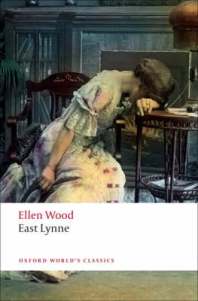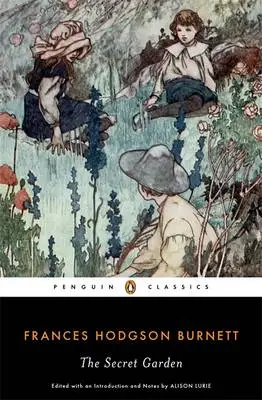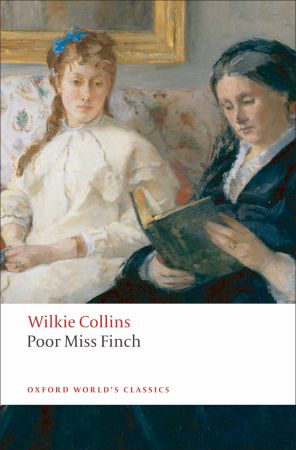 Spanning across nearly a decade, this sweeping Sensation novel charts the disgraceful downfall and eventual partial redemption of aristocrat Isabel Vane. Left impoverished after her father’s death and at the mercy of her cruel and spiteful aunt, the quiet and timid Isabel accepts the marriage proposal of Thomas Carlyle after they meet again. Mr Carlyle, a humble, albeit a successful and popular, lawyer had earlier purchased the Vanes estate, East Lynne. Isabel, with no other options, marries Mr. Carlyle believing that she will one day learn to love him. Isabel admires and likes Mr. Carlyle enough and he in turn is thoughtful, considerate and deeply in love with Isabel. Although Isabel had believed that coming back to her former home at East Lynne would bring her happiness, Isabel is lonely and dominated in her house by Mr. Carlyle’s older sister, Cornelia, who has moved in with them and leaving Isabel with no say in the running of the domestic. After the birth of their three children, Isabel’s health deteriorates and she is sent to recuperate at the seaside. Despite her pleas for her children to accompany her, Isabel is denied this by the doctor and Cornelia who admonishes her about the expenses.
Spanning across nearly a decade, this sweeping Sensation novel charts the disgraceful downfall and eventual partial redemption of aristocrat Isabel Vane. Left impoverished after her father’s death and at the mercy of her cruel and spiteful aunt, the quiet and timid Isabel accepts the marriage proposal of Thomas Carlyle after they meet again. Mr Carlyle, a humble, albeit a successful and popular, lawyer had earlier purchased the Vanes estate, East Lynne. Isabel, with no other options, marries Mr. Carlyle believing that she will one day learn to love him. Isabel admires and likes Mr. Carlyle enough and he in turn is thoughtful, considerate and deeply in love with Isabel. Although Isabel had believed that coming back to her former home at East Lynne would bring her happiness, Isabel is lonely and dominated in her house by Mr. Carlyle’s older sister, Cornelia, who has moved in with them and leaving Isabel with no say in the running of the domestic. After the birth of their three children, Isabel’s health deteriorates and she is sent to recuperate at the seaside. Despite her pleas for her children to accompany her, Isabel is denied this by the doctor and Cornelia who admonishes her about the expenses.
“The children are not going to the sea-side,” said she [Cornelia]. “They are not ordered there.”
“But they must go with me,” replied Lady Isabel. “Of course they are not expressly ordered to it. Why should they not go?”
“What should they not?” retorted Miss Corny. “Why, on account of the expense, to be sure. I can tell you what it is, Lady Isabel, what with one expense and another, your husband will soon be on the the road to ruin. Your journey with Joyce and Peter will cost enough, ma’am, without taking a van-load of nurses and children.” – p. 209
Left alone at the seaside to recover her health, Isabel bumps into Captain Levison whom she had previously felt attracted to when they were acquainted in their youth. Despite having been warned by Isabel’s uncle that Captain Levison was a bad influence, Isabel can’t deny his allure. Frightened and confused, Isabel flees back to East Lynne but a series of coincidences have Mr. Carlyle invite Captain Levison to stay at East Lynne. While Mr. Carlyle becomes heavily involved in acquitting a falsely condemned man, the brother of a family friend, pretty Barbara Hare, Isabel grows jealous and is swayed under Captain Levison’s influence. One night, both Isabel and Captain Levison disappear.
The hand-writing, his wife’s, swam before the eyes of Mr Carlyle. All, save the disgraceful fact that she had flown – and a horrible suspicion began to dawn upon him with whom – was totally incomprehensible. How had he outrages her? in what manner had he goaded her to it? – p. 281
A year passes and Lady Isabel is hiding in France, deeply regretting having run away with Captain Levison who, as soon as he received what he wanted, treats Isabel badly and leaves her unmarried just as she is about to give birth to their child. Seeking repentance, and missing her other children dreadfully, Isabel begins her journey back to England when she is involved in an accident. Misidentified, the authorities notifies her uncle that Isabel has died and the news travels back to Mr. Carlyle who is now married to Barbara. Isabel, with her face and figure scarred, adopts a disguise and a new name and, again, through twisted coincidences is recommended as a governess to Mr. Carlyle’s family which includes his children with Barbara. And so Lady Isabel returns to East Lynne once more, this time under an eccentric disguise and a new name, Madame Vine, and as a stranger to her children in a house that was once hers.
I quite enjoyed this book, being a huge fan of Sensation fiction. This, along with Wilkie Collins’ The Woman in White and Mary Elizabeth Braddon’s Lady Audley’s Secret makes up the core Sensation trilogy. Many of the plot lines were contrived but I quite enjoyed it. It’s like a Victorian soap opera. Isabel remained an elusive character though and while I didn’t despise her, I also didn’t quite warm to her although I did pity her and her tragic circumstances. Unlike other adulteresses in many other Victorian fiction, Isabel is not painted as a ‘scarlet woman’ but merely a woman who made one mistake that ultimately cost her everything.



